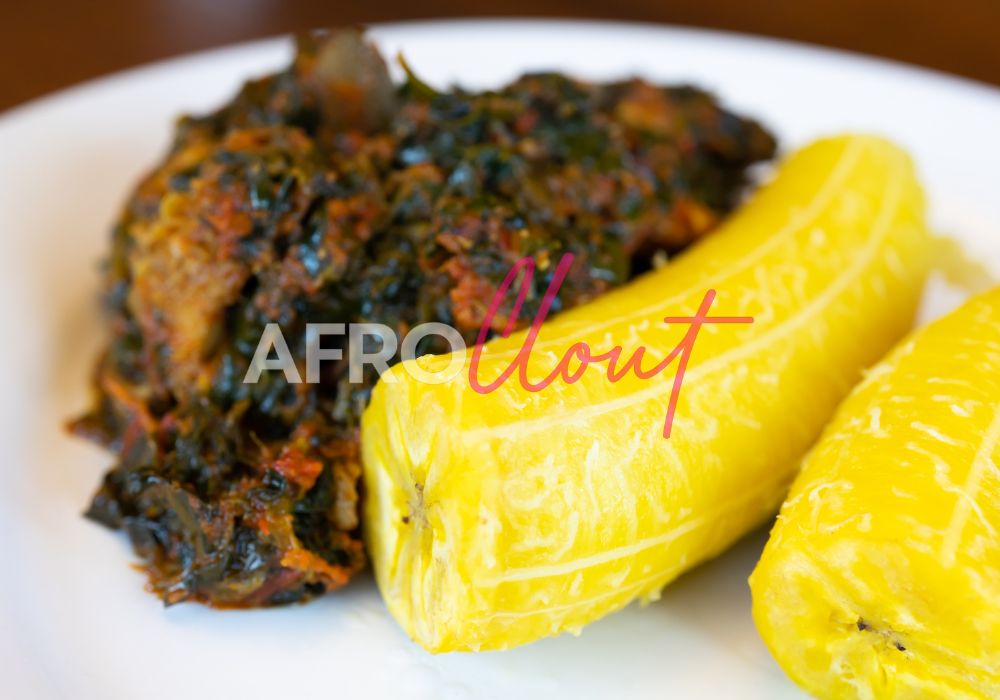High blood pressure (hypertension) is one of the most common health issues affecting Nigerians today — and it’s often called the silent killer. But the good news? You can control and even lower it naturally by making smart choices in the kitchen.
From the yam pounded in your mortar to the vegetables in your stew, certain Nigerian staples are packed with nutrients proven to help regulate blood pressure.
Here are 7 Nigerian foods that can keep your heart happy — and they’re delicious too.
1. Ugwu (Fluted Pumpkin Leaves)
Ugwu isn’t just for soups like Egusi or Edikang Ikong. This leafy green is a potassium powerhouse — and potassium helps your body get rid of excess sodium, one of the main culprits behind high blood pressure.
-
How it works: Potassium relaxes blood vessel walls and balances electrolytes in the blood.
-
How to eat: Add fresh ugwu to vegetable soups, smoothies, or even lightly stir-fry it with garlic and onions for a side dish.
-
Extra tip: Pair ugwu with low-sodium seasoning cubes to keep the meal heart-friendly.
2. Beans
From ewa agoyin in Lagos to waakye in Ghana, beans are a versatile source of plant protein and fiber.
-
Blood pressure benefits: Fiber helps control cholesterol levels, while magnesium and potassium work together to regulate blood flow.
-
Best choices: Brown beans, black-eyed peas, or kidney beans.
-
Cooking note: Avoid cooking beans with too much palm oil or salty stock; use tomatoes, onions, and peppers for natural flavor.
3. Plantain (Preferably Unripe)
Unripe plantains are rich in potassium, resistant starch, and vitamins that support cardiovascular health.
-
Why unripe works best: They have a lower sugar content and higher fiber than ripe plantains.
-
Serving ideas: Boil and serve with garden egg sauce, grill for a smoky taste, or steam and add to soups.
-
Pan-African note: In Kenya and Uganda, similar green bananas (matoke) are also used as a blood pressure–friendly food.
4. Garden Eggs (African Eggplants)
These purple or white vegetables are rich in antioxidants, magnesium, and potassium.
-
Effect on blood pressure: Antioxidants help reduce inflammation in blood vessels, while magnesium supports heart rhythm stability.
-
How to eat: Raw with groundnut paste (as done in Ghana), in stews, or roasted as a snack.
-
Pro tip: Keep the skin on for maximum nutrients.
5. Okra
Okra (known as lady’s fingers in South Africa) is a superfood for heart health.
-
Nutritional edge: Packed with magnesium, calcium, and fiber.
-
Blood pressure benefits: The soluble fiber in okra helps slow sugar absorption and improves cholesterol balance — both important for keeping blood pressure in check.
-
Popular dishes: Okra soup with lean fish or okra stew without too much oil.
6. Watermelon
Watermelon is more than a refreshing street snack on a hot Nigerian afternoon.
-
Why it helps: Contains citrulline, an amino acid that helps your body produce nitric oxide — which relaxes blood vessels.
-
Serving ideas: Blend into smoothies, serve chilled as fruit salad, or freeze for watermelon popsicles.
-
Fun fact: South African and Kenyan varieties are just as nutrient-rich, making it a cross-continent superfruit.
7. Fish (Especially Mackerel and Sardines)
Nigerian diets often feature mackerel (Titus fish) and sardines, which are rich in omega-3 fatty acids.
-
Impact on blood pressure: Omega-3s help lower triglycerides, reduce inflammation, and improve overall heart function.
-
How to prepare: Grill, steam, or bake with minimal salt and seasoning.
-
Budget-friendly tip: Canned sardines in tomato sauce (low-sodium) are a great option.
Lifestyle Add-On
Food alone won’t do the job if your lifestyle habits work against you.
-
Reduce salt intake — aim for less than 5g a day.
-
Exercise regularly — even a 30-minute walk in Lagos traffic counts!
-
Manage stress — try relaxation techniques like deep breathing, prayer, or listening to calming music.
-
Avoid excessive alcohol and smoking.
Which of these Nigerian foods do you already eat regularly? Share your favorite recipes in the comments — your heart will thank you.




